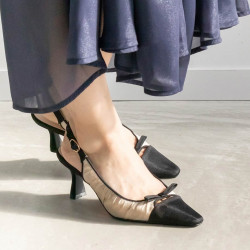
Originally published on metropolis.co.jp on July 2010

Eparama Tuibenau
What’s the rush? One minute you’re attending your 12th sayonara party, singing karaoke completely off-key, and the next you’re sitting in Segafredo wondering where everyone went. Why do expats feel the urge to leave on the first flight out of Tokyo the very day school ends? And where is everyone rushing? With the exception of one, maybe two women, most expat wives I spoke to were spending their summers as guests in various friends’ and family members’ homes, hauling their kids from one place to another, without their husbands.
Consider my friend Kat (her name has been changed to protect her from people thinking she is crazy), who last summer traveled from Tokyo to Minneapolis, to Hartford, Connecticut, to Minneapolis to Northern Minnesota, to the Twin Cities, to Omaha, Nebraska to Kansas City to Owatonna, Minnesota (I’m getting tired just typing this), to Seattle, to Lakeside, Montana to Seattle to Minneapolis and then finally flew home to Tokyo. And she did it in eight weeks, dragging her three children and eight suitcases with her.
One complication many expats face is trying to figure out where to tell people they are from. My friend “Barbara” moved directly to Cairo after her wedding, and from there they moved to Moscow, then Namibia. They had a brief spell in Maryland (their hometown) but after 18 months moved to Mexico City and then Paraguay before arriving in Tokyo.
And talk about challenges with summer vacation when you are from a country in the Southern Hemisphere. You get to take your “summer” holiday during their winter, basically ensuring that you never have a real summer.
There can be a serious amount of guilt and pressure put on the expat family. According to a 2009 survey by FreshMinds on behalf of HSBC Banks International, 59 percent of the 190 million people working outside their land of birth were over the age of 39. That leaves a lot of angry grandparents back home.
Assuming you can make plans that include visiting all your loved ones in the eight-week time frame, at what point do you consider your own children’s needs? Many of these kids have been taken out of their comfort zone and have had to change schools, make new friends, and live in completely new environments. Most likely they have also had to leave behind a sport or artistic outlet that they are passionate about. My friend Stephanie’s daughter rowed crew all through middle school and for two years of high school—something not easy to replicate in a concrete city like Tokyo. My son Hayden plays football here in Japan, but the level of play is not the same as it was back home. He is concerned that his father’s assignment to Japan has completely taken him off the Division I athletic track for university scholarships.
To make up for life abroad without these opportunities, we as parents need to make sure that kids get every opportunity to compensate for the loss during the summer. For Hayden, that means five different football camps in five different cities in the US, involving massive amounts of planes, trains and automobiles.
And let’s talk doctors. If you have a large family like I do, the number of doctor’s visits scheduled during the summer vacation could be in the 30-40 range. At a certain age, each child may need to see a pediatrician, a dermatologist, an ophthalmologist, an orthodontist and a dentist, and if they have specific medical issues, the list can be even longer.
And lastly, there is Target. After ten months of deprivation, you find yourself buying massive quantities of things you just have to have for the upcoming year. My girlfriend Libby still hasn’t made a dent in her supply of authentic olive oil from Greece.
And so, on summer vacation, while we are traversing our countries and spending a few days here and fewer days there, we shop. We make long lists of all the items we think we’ll need, like hiking boots for Bhutan, cleats for baseball, tennis whites and camping gear. We’ll remove all the tags and somehow wedge it all into the two suitcases the airlines allow each of us and pray the customs agent at Narita won’t question our 12 suitcases when we arrive home in August, completely exhausted from our summer “vacations.”
If it sounds like I’m complaining, I’m not—the expat summer is almost comical, and probably a lot different than what non-expats would imagine. Even with all the work involved, I’m not giving up my gaijin card anytime soon.







